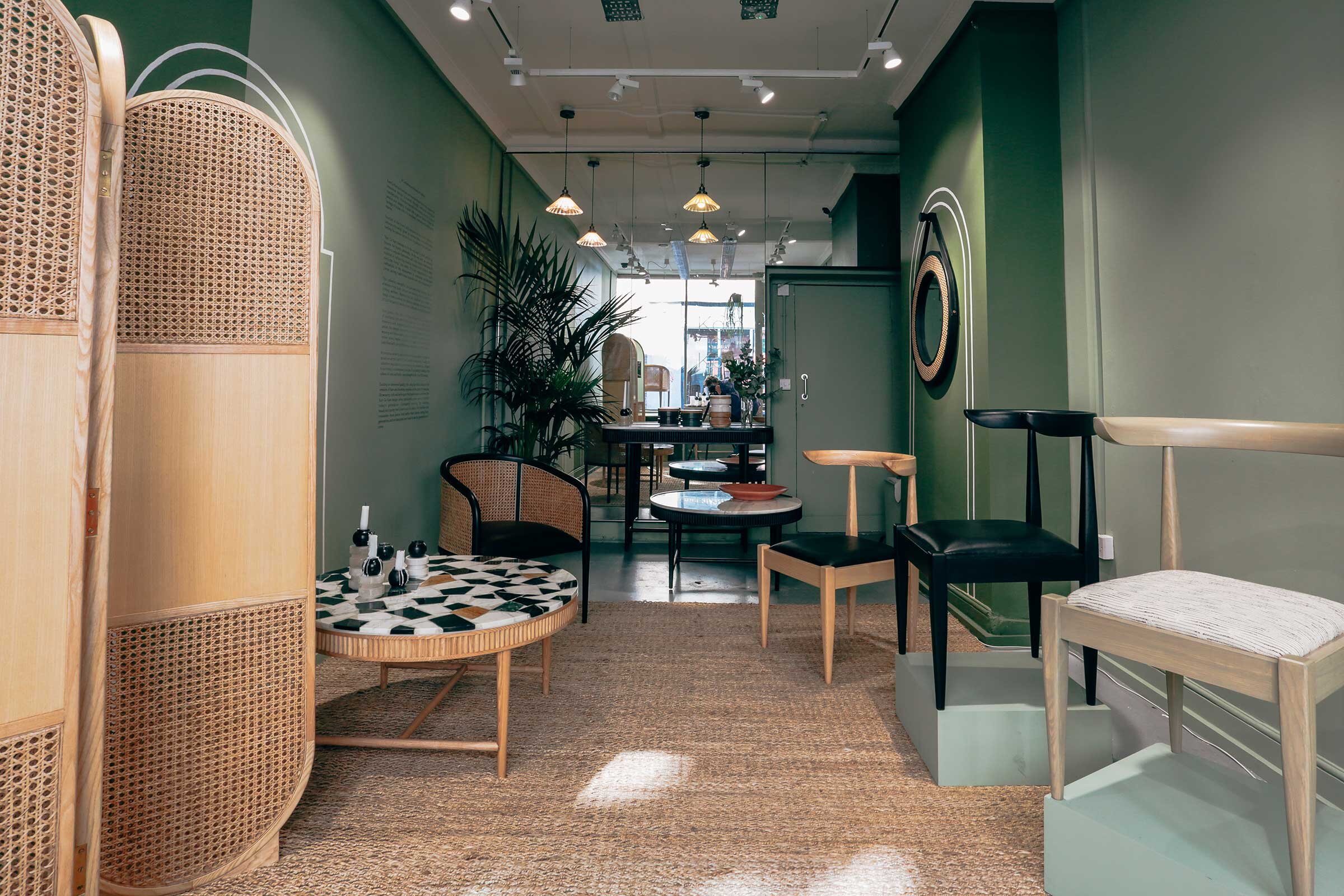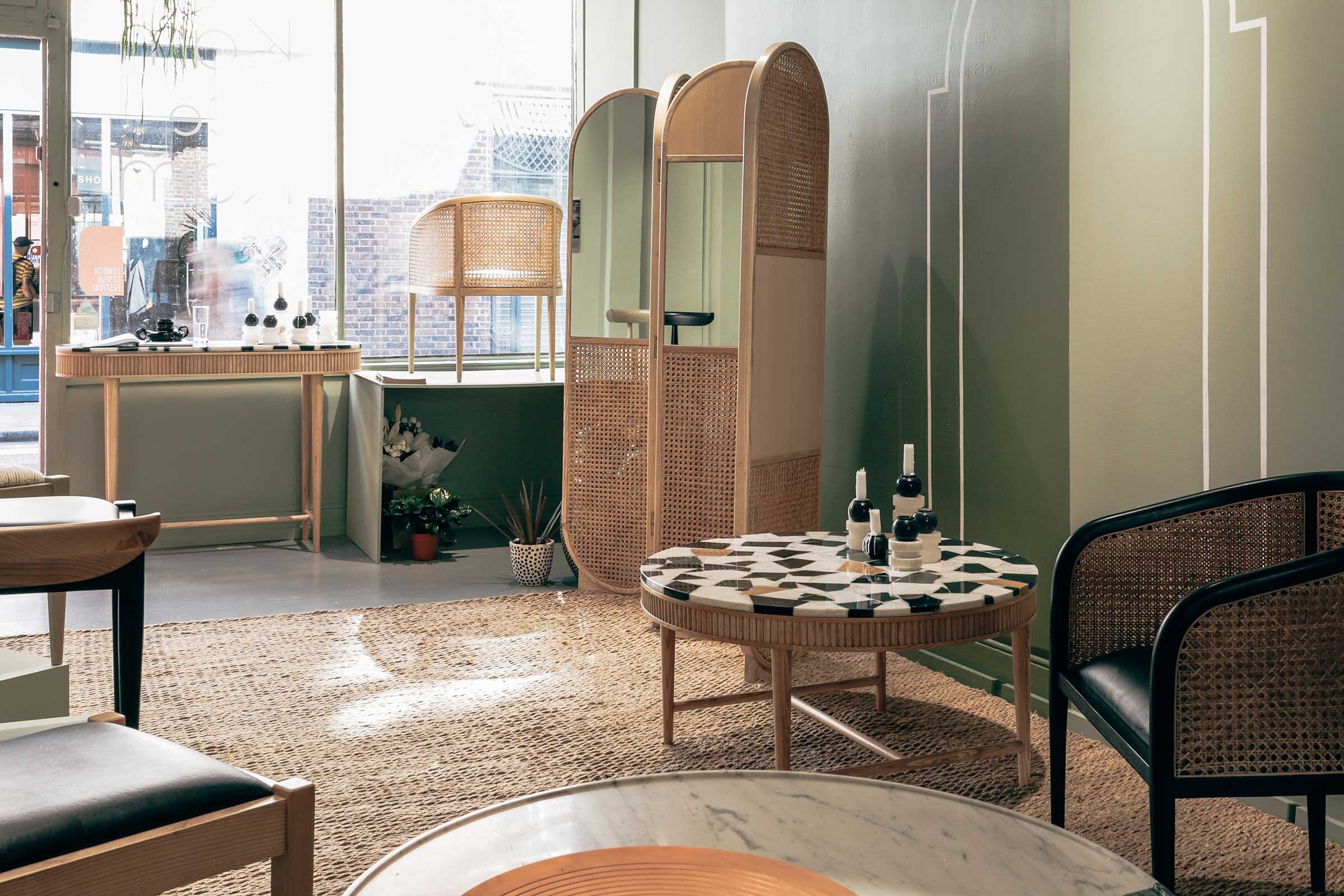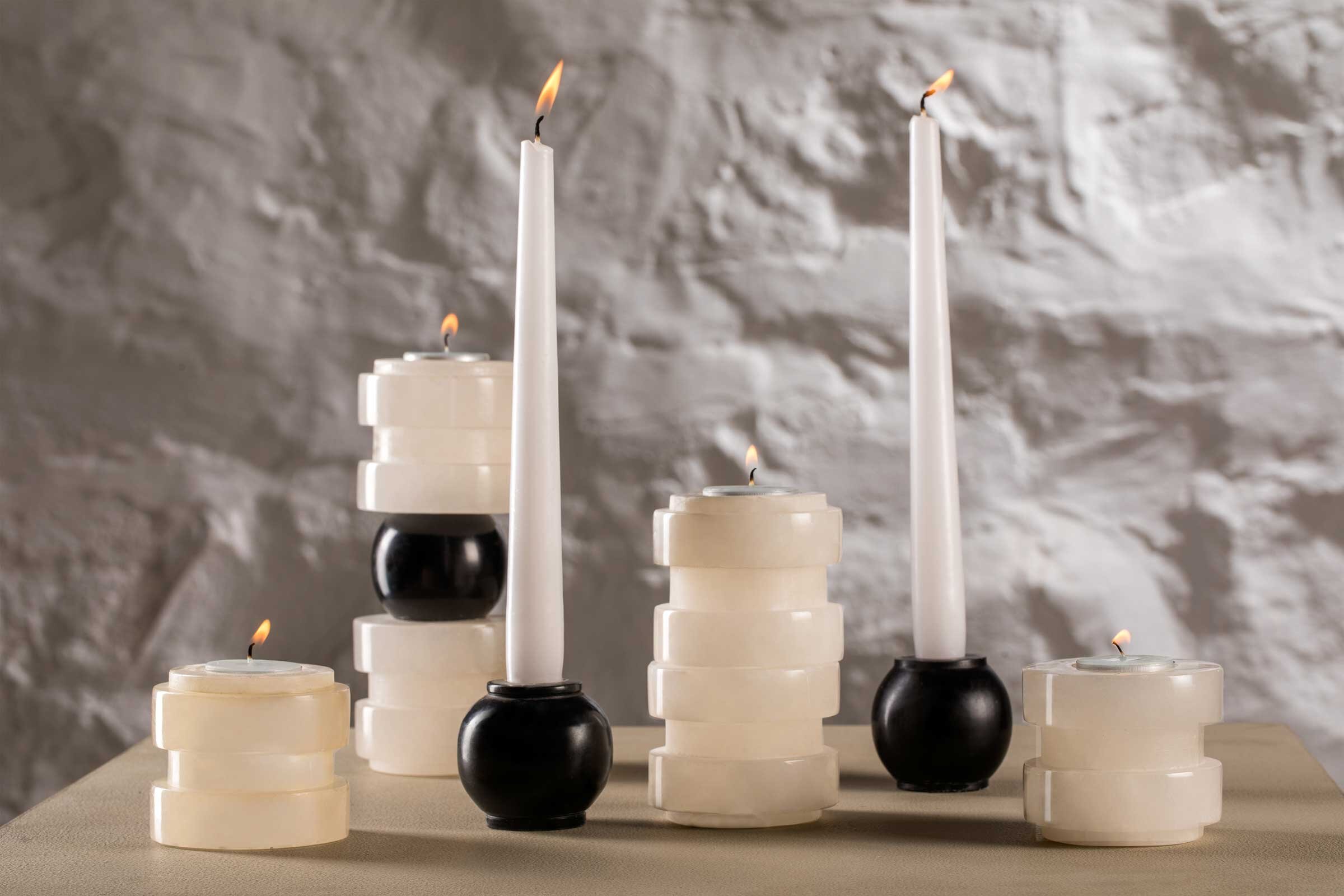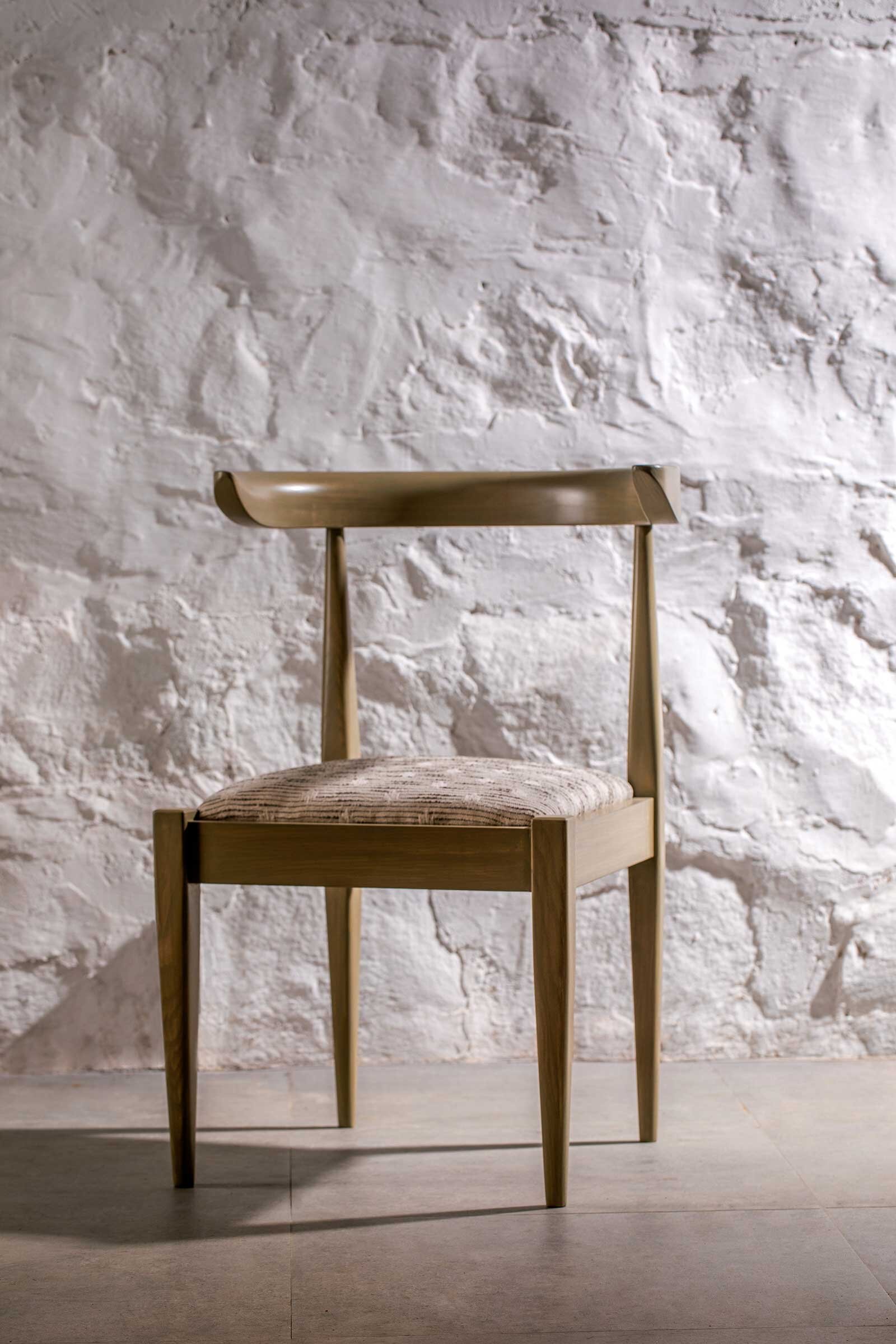Long Live the Craft

London-based furniture brand Kam Ce Kam bridges East and West by reimagining traditional Indian crafts in contemporary designs
Image by Josh Rushby
There’s an art to balancing Eastern and Western aesthetics, and furniture brand Kam Ce Kam embodies this balance by bridging two seemingly opposing worlds with a unified vision. The name Kam Ce Kam comes from the Hindi phrase for ‘at the very least’ — a philosophy that not only speaks of pared-down and restrained silhouettes, but which also resonates with founder Jehanara Knowles’s multifaceted upbringing in India and the UK. Conceptualised and designed by Knowles herself, each piece in the brand’s launch collection is intricately connected to her personal story.
Knowles spent her early childhood in London and her teenage years in New Delhi before coming full circle and returning to study architecture at Central Saint Martins. She was born into a family of design entrepreneurs; her parents have long championed Indian handicraft within the UK, having been one of the first to bring traditional handmade wares from India to the shelves of established department stores such as John Lewis & Partners. It’s against this dynamic and culturally diverse backdrop that Knowles’s awareness of the heritage and complexity of Indian crafts was developed. While pursuing a career in architecture, she remained drawn to the depth and simplicity of Indian craft, and it was this fascination that eventually led her establish Kam Ce Kam.
The brand’s inaugural collection, which debuted at the 2019 London Design Festival, is characterised by a focus on bamboo cane weaving and stonework, two craft forms that Knowles assiduously researched in the years before founding Kam Ce Kam. Her intention is to highlight just a handful of traditional Indian techniques per collection, gradually branching out through considered collaborations with the likes of designers such as Morgane Roux-Lafargue of Atelier Avéus*, who she’s recently partnered with.
Each Kam Ce Kam product is meticulously handcrafted in India by a team of 30 local artisans who painstakingly cut, shape and polish raw materials into design pieces that encapsulate the aesthetics of British India with contemporary flair. Knowles’s unique upbringing has made her sensitive to the nuances of societal differences and approaches to work, a trait that has allowed her to develop meaningful relationships with traditional artisans wherein she can guide them towards a refreshed aesthetic that fits the international design scene without compromising the essence of their craft. ‘To me, true artisanship is a reflection of people’s nuances, and this is something I find truly special and profoundly magical. It’s my desire, through Kam Ce Kam, to connect you to each person who was involved in the making of a piece, all of whom are part of the other’s narrative,’ she explains.
Knowles has ambitious plans for Kam Ce Kam, aiming to not only expand her collection of furniture and design products, but also to evolve the brand into a platform for showcasing the very best in crafted wares reinterpreted by designers both from and outside of India. In her eyes, the key to preserving traditional crafts and supporting the craftspeople who’ve mastered them is through innovative collaborations, sensitive reinterpretation and the magical connection of stories shared across continents.
Text / Rossella E Frigerio
Images / Courtesy of Kam Ce Kam
Image by Josh Rushby
Image by Josh Rushby
Image by Josh Rushby
Image by Josh Rushby
Image by Josh Rushby
Image by Atul Pratap Chauhan
Image by Atul Pratap Chauhan
Image by Atul Pratap Chauhan
Image by Josh Rushby
Image by Josh Rushby
Image by Josh Rushby
Image by Atul Pratap Chauhan
Image by Josh Rushby
Image by Josh Rushby
Image by Shovan Gandhi
Image by Jigyasa Singh
Image by Meera Knowles
Image by Meera Knowles
Image by Jigyasa Singh
Image by Jigyasa Singh


























